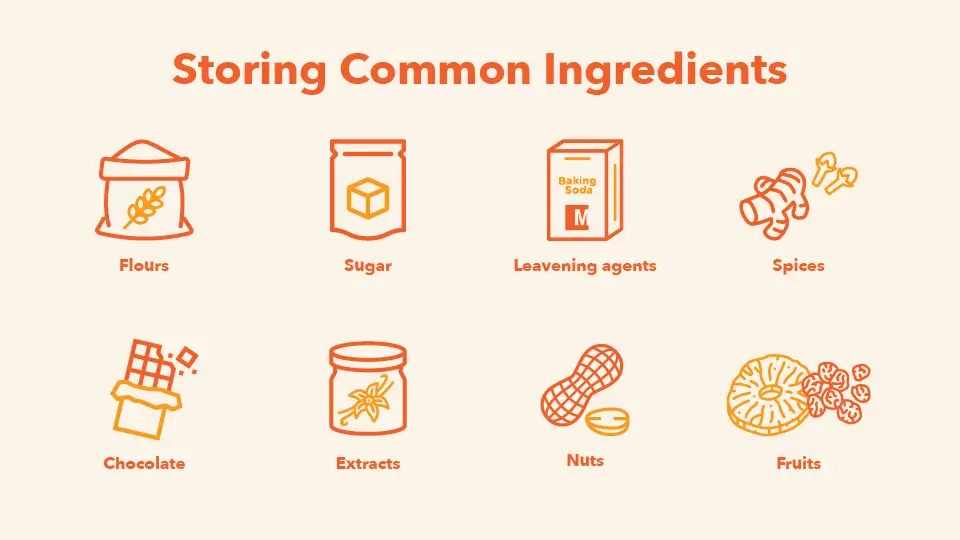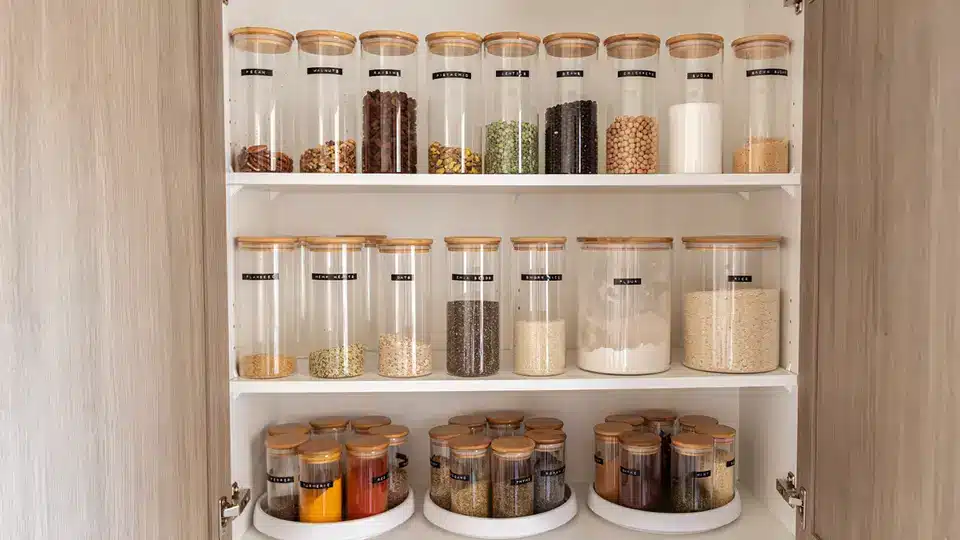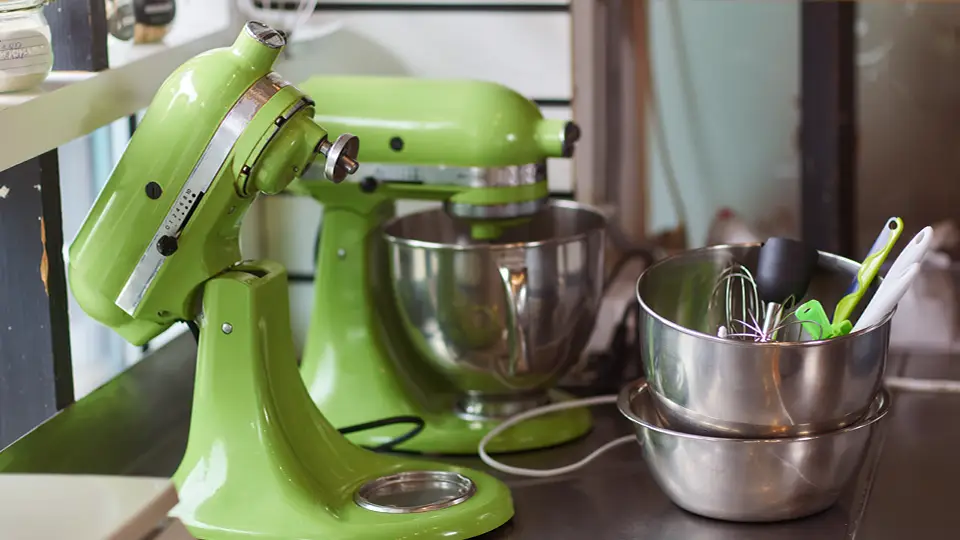The A to Z of Storing Baking Essentials

From ingredients to equipment—baking as a passion, hobby, or side hustle can take up a lot of space. There are appliances, spoons and spatulas, measuring cups, and an endless array of baking pans and tins, not to mention the flours, powders, and ingredients needed to make every recipe come to life. In this post, Mini Mall Storage has the perfectly levelled scoop on some of the dos and don’ts for proper storage and some solutions to ensure your baking gear is in good shape for the long run.

Storing common ingredients
Ingredient storage depends on a few factors, including whether it belongs in the cupboard, the fridge or the freezer. Here are some best practices for common dry ingredients. As a rule, always store dry ingredients in an airtight container in a cool, dark place for the best results.
Flours: The key to storing flour is to limit exposure to moisture and pests, which can cause it to spoil.
Sugar: Granulated sugar can last pretty much indefinitely, while powdered sugar lasts up to 12 months. Just like flour, moisture and pest control are key to keeping sugar fresh.
Leavening agents: Baking powder or soda should be stored in an airtight container as they can lose their potency over time and should be replaced every six months. Yeast should actually be kept in an airtight container in the refrigerator or the freezer if you want it to last longer.
Spices: Store away from heat and light. Most spices can last for a few years, but some, like turmeric and ginger, may lose potency faster, so it’s best to buy them in smaller quantities.
Chocolate: If you bought in bulk and will be storing chocolate for a long time, consider freezing it in an airtight container so it doesn’t get chalky or go off.
Extracts: Store in a cool, dark place, preferably in dark-colored bottles. Once opened, most extracts will last for several years.
Nuts: Store in an airtight container in a cool, dry place. For long-term storage, freeze nuts in an airtight container.
Fruits: If dried, store in an airtight container in a cool, dark place. Dried fruits will usually last for about 1-2 years. Canned fruits like pumpkin puree or cranberry sauce can last much longer but must be refrigerated after opening.

Best practices for storing ingredients
Label and date: Label containers with the date of purchase or opening so you can keep track of that BB date.
Rotate: Practice FIFO (First In, First Out) to ensure ingredients are used before they expire or lose freshness.
Avoid moisture: Store ingredients in airtight containers to prevent moisture from affecting quality. This is especially important if you live in a humid climate.
Temperature control: Keep dry ingredients in a cool, dry place away from direct sunlight and heat sources. Set your refrigerator to 40°F (4°C) or below. Set your freezer to 0°F (-18°C) or below.
Regular inventory: Take stock of your baking ingredients every now and then to identify and throw out any items that have been stored for too long
Storing Baking Equipment
Baking equipment is where things can start to get a little cluttered at home. Unless you have an extra room to keep everything organized, you’ll have to decide what’s essential enough to earn a place on the countertop or close at hand in your kitchen, and what can go into storage for safekeeping until you really need it.
Mixing bowls
Measuring cups and spoons
Candy or chocolate moulds
Spatulas, whisks, rolling pins
Baking sheets
Cookie cutters
Stand mixer or hand mixer
Food processor
Piping bags and tips
Cake pans and muffin tins
Many baking tins and moulds tend to be seasonal, making them good contenders for being put into storage until the right time of year rolls around. Large, clear plastic storage bins work well and are easy to transport to and from storage when needed.
If you’re baking as a side hustle, you may also have to deal with packaging for all your baked goods. When you’re working out of your home, things can quickly start to feel cluttered. A storage unit with some shelves and bins to keep everything sorted can help make your life much easier and your business run a bit smoother.

Organization Tips:
Countertop vs. Storage: Consider keeping frequently used items on the countertop for easy access, such as a stand mixer, blender, or food processor. Store less frequently used items in cupboards, drawers, or bins that can easily be moved to a storage unit to keep everything neat and tidy.
Labelling: Label containers and shelves to help you quickly find what you need. This is especially important with ingredients, so you know exactly what’s in all those little jars in the cupboard. Label bins and storage boxes too so you can find what you need in a snap.
Decluttering: Regularly declutter your baking space to avoid getting overrun with kitchen tools you never use and equipment that might be past its prime. Regular decluttering can make it much easier to find what you’re looking for.
A little goes a long way when it comes to keeping your baking equipment clean, organized, and in good condition. And if you find yourself in cramped quarters, a storage unit can help. Use your storage unit to store seasonal tins, moulds, decorations, and more. Or set it up as your bakery side hustle base camp so you can get all your delicious creations packed up and ready to go. Not sure what size unit you need? Use our size calculator, or contact Mini Mall Storage to speak to one of our friendly Customer Support Specialists today.